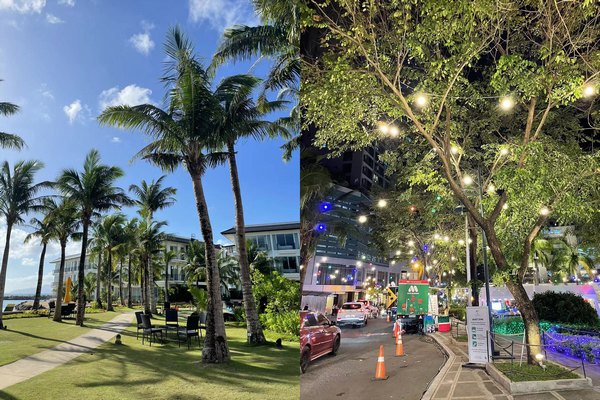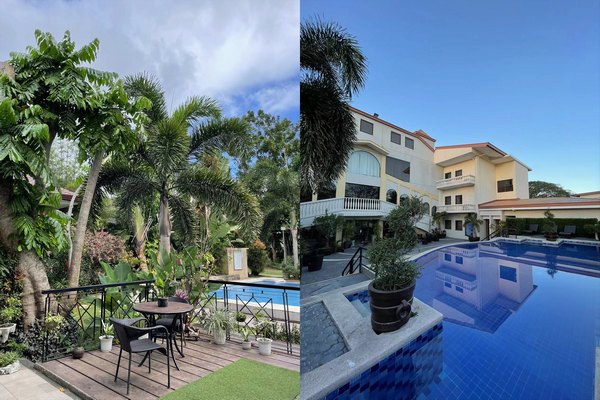对英语的学习,很多人都有自己的一套学习技巧有的人通过看书背诵单词积累词汇、学习语法知识提高自己的英语水平。而有的人只会通过美剧、音乐等来提高自己的英文水平。在小编看来,对于基础比较薄弱的同学来说,通过网课的学习是提高自己英语口语的一个好方法。除了这一个,很多人在学习英语口语的时候,都习惯背诵一些常见的句型来增加自己的知识储备量。雅思口语考试分为三个部分,其中第三部分是雅思口语考试中的最后一部分,那么对于雅思口语第三部分,我们应该怎么备考呢?以下就是关于雅思口语第三部分的备考准备,以及雅思口语常见的一些模板,一起来看看吧。
一、雅思口语第三部分怎么准备
Part 3: 解析与示例
雅思口语考试第三部分考察学生对有争论性的问题,表达个人见解,辩证分析讨论问题的能力。考官根据第二部分的话题卡,将讨论延伸至更加广泛抽象,更加有深度的话题上。
提示:雅思口语考试第3部分,问题会涉及到有争议的问题,但是无论你怎么回答,都不会有对错之分,考官关心的是,你是如何分析回答问题的,以及你使用语言的准确性。
分析,辩证的逻辑举例与口语练习在雅思口语第三部分的评分中至关重要。当然,正确的使用复合从句及逻辑条理的连接词,可以充分展现你驾驭英语的能力,无疑可以为考生加分。
Part 3:问题类型与语言点考察举例
Part 3 的问题基本可以总结为7种问题类型。针对不同的问题类型,相对应不同的英语答题逻辑。
问题类型
试题举例
陈述及例证支持观点
Do you think that city life is good for elderly people?
评估分析正反或多种观点
Why do some people think that university life is the best stage in life?
赞成与反对
Do you agree that famous people should advertise products on television?
谈论优势与劣势
Describe some of the disadvantages of big city life.
评定程度或重要性
What are the most important things to bear in mind if you are planning an overseas trip?
提出问题并给出解决方案
What are the main environmental problems facing the world today? How could they be addressed?
推测未来可能发生的事情
Describe some of the major changes you think will happen in your country in the next 20 years.
Part 3 问题举例:Why do some people think that university life is the best stage in life?
这样的问题类型,可能考察你的语言能力:
形容数量的量词:“The vast majority of people think…”
比较不同观点的转折连词:“Some people believe that university life is relaxing while others find it stressful.”
形容词及形容词短语比较级: “They think it is more convenient than...”
以上仅仅列举出一部分语言点,答题的关键还是能通过答题框架结构,正确的使用以上语言点表达思想观点,下面向大家举例说明第三部分的英语答题逻辑。
Part 3:话题+问题类型=口语试题——>英语答题逻辑=雅思口语高分
提示:第三部分中,问题难度相对较大,通过把问题转换成陈述介绍性语句,帮助你取得宝贵时间,快速确认问题类型,用英语答题逻辑,组织答案。
Why do some people think that university life is the best stage in life?
这是一个评估分析正反或多种观点问题。这种问题类型的答题逻辑是:
1. Talk about which types of people hold which opinions.
2. Compare these different opinions.
3. State why people hold these opinions.
二、雅思口语part3万能模板
1.解决型
此类题目大多是问考生对于某个现象或者某样事物的不利方面,甚至是提出一个比较具有争议性的问题,要求考生对于该问题给出自己认为的比较合理的解决方法。
Q: What are the things you dislike on ... and how do you think those things can be solved in the future?
A: Well, speaking of the things I dislike on ..., the first thing pops into my mind is ..., which I think is a natural result of ..., so I suppose a systematic and reasonable regulation and rule should be carried out based on currently unsatisfactory situation. Hum, ... sounds like a good idea, and ... might contribute a lot to this situation as well.
2.展望型
要求考生对于某样事物的未来发展或者趋势做一个简要的描述。 Q: How do you think of ... in the future?
A: Well, although ... be not perfectly developed yet, I have to say it is a cool thing and its advantages are far outweighing its disadvantages. And with the joint effort coming from both government/and individual, I firmly believe that the future of this issue will be very bright. 途径型
对于具体如何做某件事情,提出一个具体的方案或者思路。
Q: How to do something? Can you recommend some ways to do ...?
A: Well, there are obviously plenty of ways to do ..., and it varies a lot from people to people. But for me, the top priority is ...; Another factor I take into consideration is ...; One more way I can think of is ...
3.态度型
即对于当前常见话题提出自己的观点或见解。建议考生提出自己的观点的时候,可以多结合一些实际生活情况来谈谈,充实口语内容。 Q: How do you think ...? (importance of ...)
A: Well, this has already become a buzzword which is so popular that it will pop up everywhere every time when you read newspaper, glimpse magazine or surf the Internet. Of course, opinions vary greatly from people to people. I think this is a cool thing. Because firstly ..., another thing I can think of is it ...; However, there is always a fine line in everything. The same here: Don't ever go way too far.
A: Well, we are all living in a world where ... is becoming more and more important. It is very hard to imagine how someone can survive without doing ...; And obviously, it has become the one of the very few things that can't be measured in terms of money.
4.活动型
活动型就是问考生具体做某件事情或者参加某个活动的一个过程,要注意时态的使用。 Q: What do you usually do when ...?
A: First, I have to say there isn't any particular thing I usually do when ..., it varies a lot. Say, it depends on .... If ..., I will do ...; I would do ... if .... Sometimes just go with the flow.
三、雅思口语怎么备考
雅思找到一个专业的外教进行练习还是很有必要的。分享一下小编在用的app:留小留,可以随时和世界各地的Native Speaker进行一对一的口语对练,里面有很多专业的雅思外教可以选择,而且还有前雅思高级考官,强烈建议考试前跟雅思考官模拟测试一下。这个软件用起来就跟打微信语音/视频电话一样,质量很清晰。这个是最让小编感到意外且性价比超级高的一个APP了。小编长期练习的一个外教陪练是英国的Leila,她不仅口音纯正,而且人超级nice,她本人还是一个摄影师,小编也经常跟她交流摄影方面的技巧。
不过大家在跟外国人练习雅思口语的时候,小编有2个建议:1是提前准备一个话题,带着话题去跟他们练习能让你学到很多地道的表达;2.是不一定非要选择欧美的老外,像有些南非、菲律宾的也很专业,练习口语也不错。
四、雅思口语练习必备100句
以下句型大家可以参考练习口语:
1.I’m an office worker. 我是里班族。
2.I work for the government. 我在政府机关做事。
3.I’m happy to meet you. 很高兴见到你。
4.I like your sense of humor. 我喜欢你的幽默感。
5.I’m glad to see you again. 很高兴再次看到你。
6.I’ll call you. 我能打给你。
7.I feel like sleeping/ taking a walk. 我要睡/散步。
8.I want something to eat. 我想吃点东西。
9.I need your help. 我需要你的帮助。
10.I would like to talk to you for a minute. 我要跟你谈一下。
11.I have a lot of problems. 我有太多原因。
12.I hope our dreams come true. 我希望我们的愿望成真。
13.I’m looking forward to seeing you. 我希望看到你。
14.I’m supposed to go on a diet / get a raise. 我需要节食/涨工资。
15.I heard that you’re getting married. Congratulations.听说你想结婚了,恭喜!
16.I see what your mean. 我知道你的意思。
17.I can’t do this. 我不能这么作。
18.Let me explain why I was late. 让我理解迟到的原因。
19.Let’s have a beer or something. 咱们喝些饮料什么的。
20.Where is your office? 你们的办公室在那?
21.What is your plan? 你的计划是怎么?
22.When is the store closing? 这家店什么时候结束营业?
23.Are you sure you can come by at nine? 你一定你九点能来吗?
24.Am I allowed to stay out past 10? 我可以十点过后又回来吗?
25.The meeting was scheduled for two hours, but it is not over yet. 会议原定了两个小时,不过目前还没有结束。
26.Tom’s birthday is this week. 汤姆的新年就在这个星期。
27.Would you care to see it/ sit down for a while? 你要不要看/坐一会呢?
28.Can you cover for me on Friday/help me/ tell me how to get there? 星期五能不能请你帮我个班/你会给我吗/你会告诉我到哪里怎么跑吗?
29.Could you do me a big favor? 能否请你给我个忙?
我们精心为大家整理的《雅思口语第三部分怎么准备 雅思口语part3万能模板》文章不知道大家满不满意,如果大家想了解更多语言培训相关的信息,请关注语言培训栏目。
本文来源:
https://shouye.dsxliuxue.com/news/77376.html






















